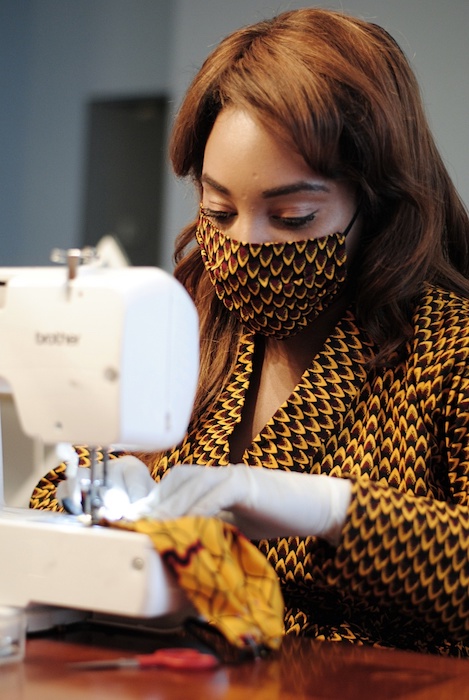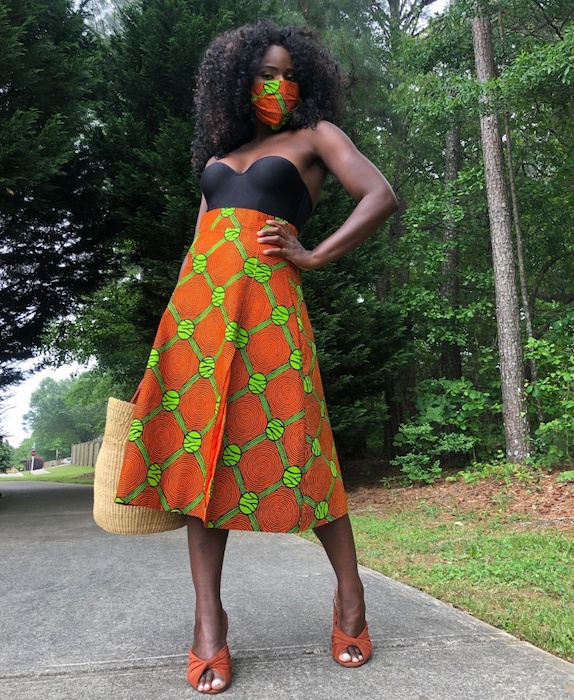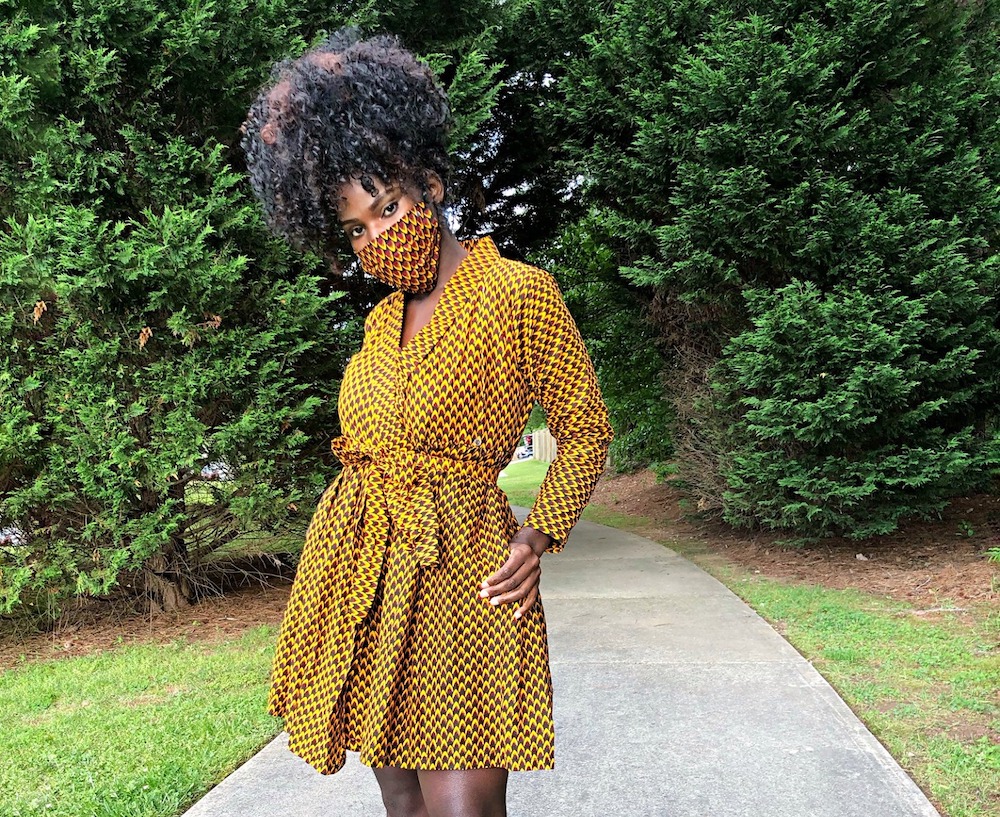
Besida: How Shifting From Clothing to COVID-19 Masks Made This Brand More Popular Than Ever
May 6, 2020
Rana Good is the founder of Naïra NYC. A writer for publications such as Forbes, Travel + Leisure, Coveteur, Mens Journal and others, she created her own platform celebrating women of color.
Around the world, coronavirus has had a huge impact on business, overwhelmingly negative. However, some businesses have been able to adjust to these challenging times and have used this moment to innovate their offerings. One such business is Besida, a womenswear brand based in Atlanta which works with tailors in Nigeria. When COVID-19 was officially declared a pandemic, sales dropped significantly for clothing but founder Sophia Danner-Okotie found a new way to entice shoppers — beautiful and colorful printed masks. Even better, for every purchase Besida donates a mask to healthcare and frontline workers in Georgia.
Demand has been so high that Danner-Okotie had to hire additional staff. Here she shares with Naïra NYC Besida’s mission and how she’s helping people during coronavirus.
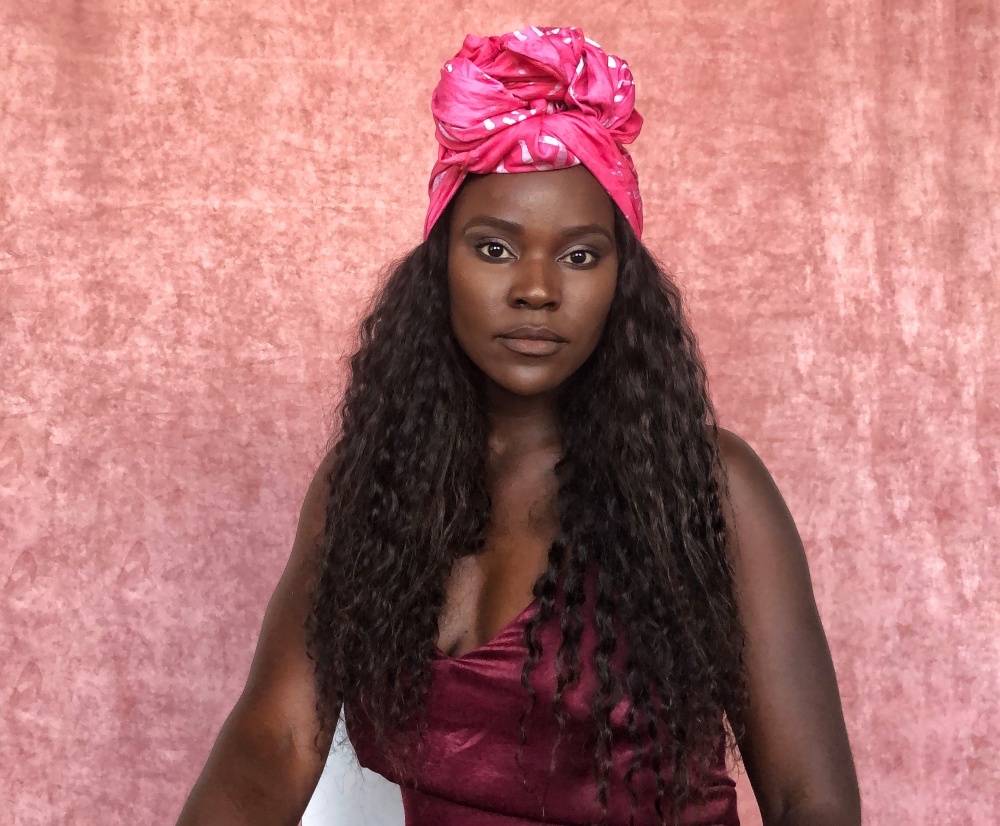
What is Besida?
Sophia Danner-Okotie: Besida is a colorful womenswear and accessory brand distinguished by our Afrocentric flair. It’s a modern brand with traditional roots. We nicknamed our style as Afrocenchic. We put people before profit and pride ourselves on ethical and sustainable manufacturing practices in Nigeria. We pay fair, living wages to our staff in Benin, Nigeria.
Your business operates in both Atlanta and Nigeria, can you tell me more about that?
I live in Atlanta, but own a mini-factory in my hometown Benin City. I design the styles here in America, and my team in Nigeria brings them to life. Part of the goal when I began Besida in 2015 was to provide employment for the talented workforce in Nigeria. They produce the garments and export them to the U.S. From Atlanta, I fulfill orders worldwide, plan nationwide pop-up shops, and provide inventory for our boutique partners.
What items/products are unique to your brand?
We design womenswear and accessories, mostly in Ankara print. Dresses, skirts, trousers, blouses, and headbands. Our most popular design is the FourMidable. It can be worn four ways: a cape, a tube top a one-shoulder blouse, and a skirt.
What inspired you to create masks during coronavirus?
I read a New York Times article at the end of March that talked about ordinary people sewing masks at home for local hospitals, due to the shortage. My cousin and I decided to do the same at our home with the fabrics we had. We donated and then began selling them on Besida’s website.
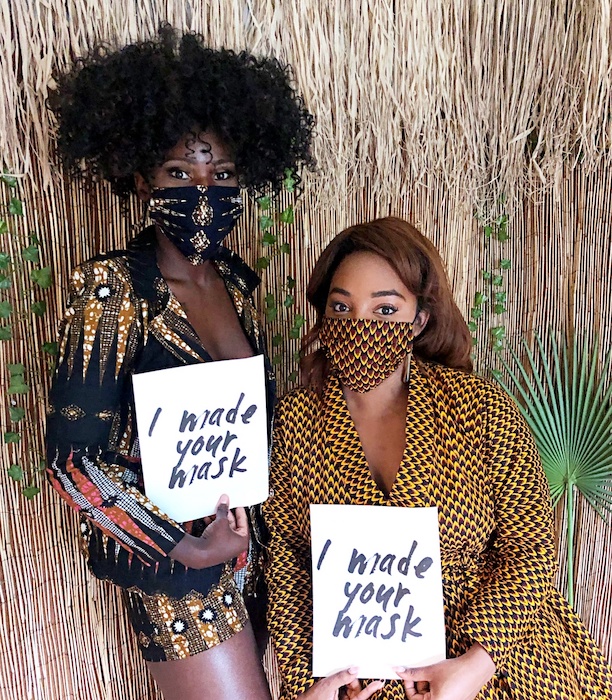
How are your masks made? What features do they have?
Our masks are made with two layers of cotton Ankara fabrics, and two elastic loops for easy wear and removal. We use a pattern with pleats similar to surgical masks. We’ve found that this design fits most adults. They are not medical grade, however.
How do you help healthcare workers?
With every order, whether mask or garment, we donate another mask to healthcare staff in Georgia. Although our masks are not medical grade or have any proven protection against COVID-19, hospitals say the cloth masks help supplement their PPE.
You were expecting to have to lay people off during this crisis but your business has grown, can you tell me more about this surprising turn of events?
The response from customers has truly been a surprising turn of events for Besida. My cousin and I were only planning on making a few masks at our home, but now we have to shift production to our factory in Nigeria to match demand. At the beginning of the pandemic, I saw a drastic decline in sales. I had to cancel our spring pop-up shops because of social distancing guidelines. Without revenue, I wouldn’t be able to pay our team. When we sold out of 200 masks in 24 hours was when I knew I wouldn’t have to lay off anyone. Instead, we’re hiring tailors to join our team in Nigeria.
